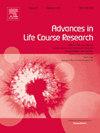工作-家庭经历与青年心理健康的时间和持续时间:应用特征选择
IF 3.4
2区 社会学
Q1 Medicine
引用次数: 0
摘要
背景在当前这一代年轻人中,工作家庭经历的时间和持续时间是否以及如何与随后的心理健康结果相关,我们知之甚少。这些信息可以为制定及时的干预措施提供信息,以促进更好的心理健康。在这项研究中,我们使用两种互补的方法来研究1990年左右出生的荷兰年轻人的工作、家庭和心理健康之间的复杂关系。首先,我们研究了工作-家庭轨迹和心理健康之间的关系。其次,我们研究了工作-家庭轨迹的时间和持续时间特征与随后的心理健康有关。方法以参加TRAILS队列研究(N = 992)的荷兰年轻人为样本,构建18 - 28岁每月工作-家庭状态的序列。心理健康被操作化为29岁时经历内化或外化问题。我们通过聚类个体序列创建了工作家庭轨迹的类型学,并使用回归分析来检验工作家庭轨迹与心理健康之间的关系。接下来,我们使用Boruta特征选择算法来识别29岁时与心理健康相关的工作-家庭轨迹的时间和持续时间特征,并进行回归分析以检验所识别的特征与心理健康之间的关系。所有的回归分析都控制了11岁至16岁之间的心理健康问题。结果在29岁时,处于工作-家庭轨道、受教育时间长、不运动的女性最容易出现内化问题。在工作与家庭之间不活跃的女性也最有可能经历外部化问题。与此同时,特征选择分析表明,在青年期的第一阶段不活动和接受教育,在青年期的最后阶段为人父母和工作,以及不活动的总持续时间都与内化问题有关。在青年时期的第一阶段和最后阶段不活跃以及在青年时期的第三阶段不活跃和父母都与外化问题有关。在工作-家庭轨道上不活跃的男性最有可能经历内化和外化问题。此外,在工作-家庭轨道上继续教育和工作的男性最有可能报告外化问题。特征选择分析表明,在青年期的最后阶段接受教育与内化问题有关。与女性相似,在成年初期缺乏运动与29岁时的内在化和外在化问题有关。结论青年期的工作-家庭轨迹与29岁时的心理健康问题相关,即使在控制早期心理健康问题的情况下也是如此。特别是,发现不活动和教育的时间和持续时间与随后的心理健康问题有关。结合序列分析和特征选择,可以更细致地了解工作-家庭经历和心理健康之间的动态关系。本文章由计算机程序翻译,如有差异,请以英文原文为准。
Timing and duration of work-family experiences and mental health in young adulthood: Applying feature selection
Background
Little is known about whether and how the timing and duration of work-family experiences are associated with subsequent mental health outcomes in the current generation of young adults. Such information may inform the development of timely interventions to promote better mental health. In this study, we use two complementary approaches to examine the complex relationship between work, family and mental health in young Dutch adults born around 1990. First, we examine the association between work-family trajectories and mental health. Second, we examine which timing and duration features of work-family trajectories are related to subsequent mental health.
Methods
Sequences of monthly work-family states from ages 18 to 28 years were constructed in a sample of Dutch young adults participating in the TRAILS cohort study (N = 992). Mental health was operationalised as experiencing internalising or externalising problems at age 29. We created a typology of work-family trajectories by clustering individual sequences and used regression analysis to examine the association between work-family trajectories and mental health. Next, we used the Boruta feature selection algorithm to identify timing and duration features of work-family trajectories related to mental health at age 29 and conducted a regression analysis to examine the associations between the identified features and mental health. All regression analyses were controlled for mental health problems between ages 11 and 16.
Results
Women in the work-family trajectories long education and inactive were most likely to experience internalising problems at age 29. Women in the work-family trajectory inactive were also most likely to experience externalising problems. In line, the feature selection analysis showed that both being inactive and being in education in the first stage of young adulthood, being a parent and in work in the last stage of young adulthood and the total duration of inactivity were associated with internalising problems. Being inactive in the first and the last stages of young adulthood and being inactive and a parent in the third stage of young adulthood were associated with externalising problems. Men in the work-family trajectory inactive were most likely to experience both internalising and externalising problems. Additionally, men in the work-family trajectory continuous education and work were most likely to report externalising problems. The feature selection analysis showed that being in education in the last stage of young adulthood was associated with internalising problems. Similar to women, inactivity in the first stage of young adulthood was associated with internalising and externalising problems at age 29.
Conclusion
Work-family trajectories in young adulthood are associated with mental health problems at age 29, even when controlling for early-life mental health problems. In particular, the timing and duration of inactivity and education were found to be associated with subsequent mental health problems. Combining sequence analysis and feature selection provides a more nuanced understanding of the dynamics between work-family experiences and mental health.
求助全文
通过发布文献求助,成功后即可免费获取论文全文。
去求助
来源期刊

Advances in Life Course Research
SOCIAL SCIENCES, INTERDISCIPLINARY-
CiteScore
6.10
自引率
2.90%
发文量
41
期刊介绍:
Advances in Life Course Research publishes articles dealing with various aspects of the human life course. Seeing life course research as an essentially interdisciplinary field of study, it invites and welcomes contributions from anthropology, biosocial science, demography, epidemiology and statistics, gerontology, economics, management and organisation science, policy studies, psychology, research methodology and sociology. Original empirical analyses, theoretical contributions, methodological studies and reviews accessible to a broad set of readers are welcome.
 求助内容:
求助内容: 应助结果提醒方式:
应助结果提醒方式:


